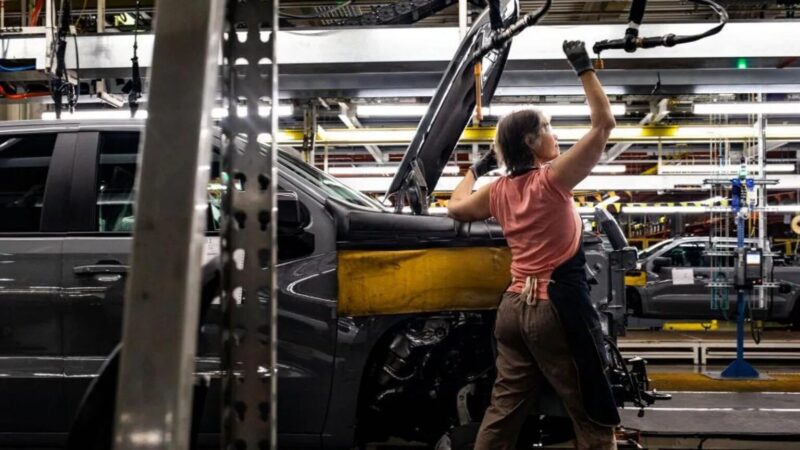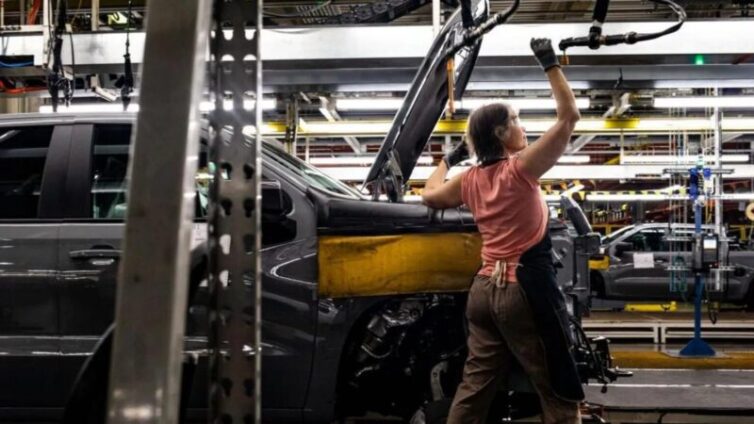The US is planning to ban certain hardware and software made in China and Russia from cars, trucks and buses in the US due to security risks.
Officials said they were worried that the technology in question, used for autonomous driving and to connect cars to other networks could allow enemies to "remotely manipulate cars on American roads".
There is currently minimal use of Chinese or Russian-made software in American cars.
But Commerce Secretary Gina Raimondo said the plans were "targeted, proactive" steps to protect the US.
“Cars today have cameras, microphones, GPS tracking, and other technologies connected to the internet," she said in a statement.
"It doesn’t take much imagination to understand how a foreign adversary with access to this information could pose a serious risk to both our national security and the privacy of US citizens."
Chinese officials said the US was broadening "the concept of national security" to unfairly target Chinese firms.
“China opposes the US’s broadening of the concept of national security and the discriminatory actions taken against Chinese companies and products,” said Lin Jian, spokesman for China’s Foreign Ministry, in a statement.
“We urge the US side to respect market principles and provide an open, fair, transparent, and non-discriminatory business environment for Chinese enterprises.”

The proposal, which will now enter a comment period, is the latest from the White House aiming to limit China's presence in the car manufacturing supply chain.
The White House has also raised tariffs on electric cars, batteries for electric vehicle and a range of other items. It has separately banned the import of Chinese-made cargo cranes, warning of cyber-security risk.
The US launched an investigation in February examining the cyber risks from so-called connected cars.
The prohibitions on software would go into effect with model year 2027, while the hardware rules would be effective three years later, giving the industry more time to re-work their supply chains.
John Bozzella, president and chief executive of Alliance for Automotive Innovation, which represents big car companies, said that though there was "very little technology - hardware or software in today's connected vehicle supply chain that enters the US from China" the rule would force some firms to find new suppliers.
“I’ve said this in other contexts, but it applies here too: you can’t just flip a switch and change the world’s most complex supply chain overnight," he said.
“The lead time included in the proposed rule will allow some auto manufacturers to make the required transition but may be too short for others," he said.
He said the association would continue to share its perspective as the final rules are developed.
Latest Stories
-
Crystal Palace beat Fulham to book FA Cup semi-final spot
7 hours -
Forest beat Brighton on penalties to reach FA Cup semi-final
7 hours -
MTN FA Cup 2024/25: Berekum Chelsea book semis slot with win over Bechem United
7 hours -
Gov’t promoting galamsey with GoldBod; the GoldBod is galamsey board – Minority
7 hours -
Ghana Navy probes suspected pirate attack on fishing vessel
8 hours -
2024/25 FA Cup: Attram De Visser stuns PAC Academy to reach first-ever semifinal
9 hours -
‘Shocking and excessive’ – Lawyer challenges $18m verdict in Anas-Kennedy Agyapong case
10 hours -
Parliament approves GH₵2.8bn for road maintenance
10 hours -
Minority Chief Whip raises concerns over ambiguities in Gold Board bill
11 hours -
Mahama warns leaders against ‘decisions that kill’ after debt crisis claims lives
11 hours -
Wisconsin Attorney General sues to block Elon Musk $2m election giveaway
11 hours -
Disney faces US investigation over DEI practices
12 hours -
Hair relaxers linked to increased breast cancer risk in Ghanaian women
12 hours -
Columbia University president resigns amid Trump crackdown
12 hours -
CJ removal petition: Citizens must not sit back and watch politicians to get their way – NPP MP
12 hours

